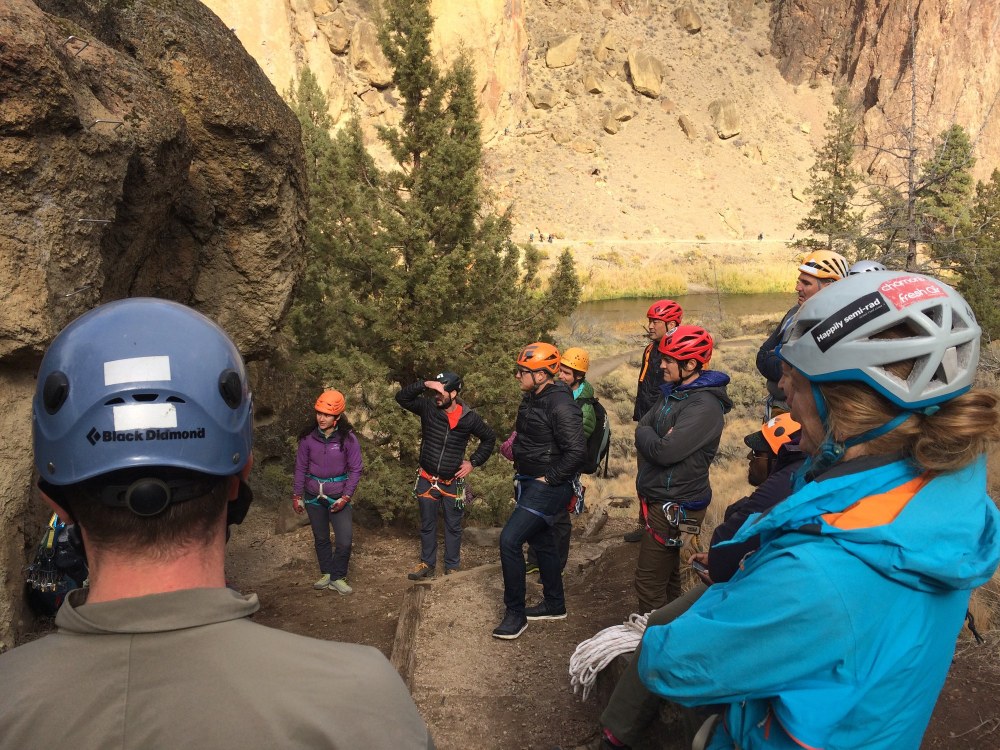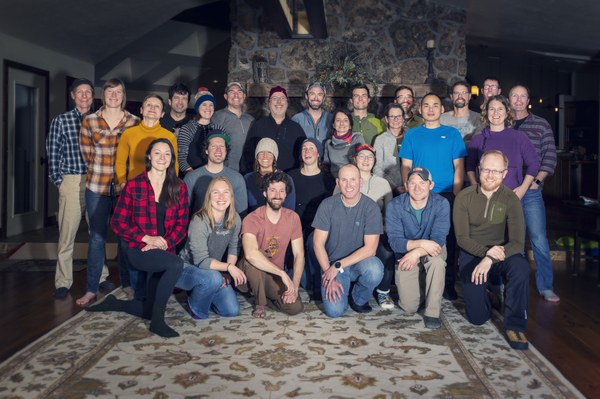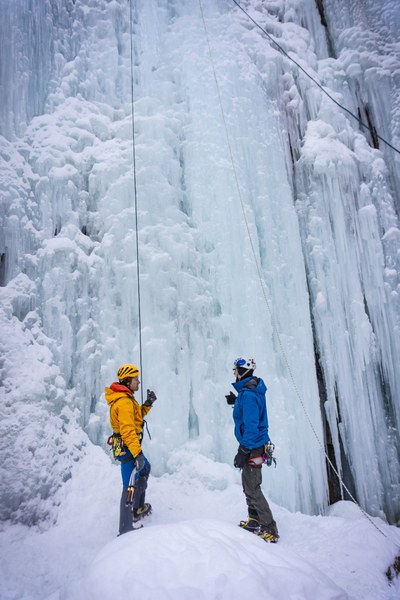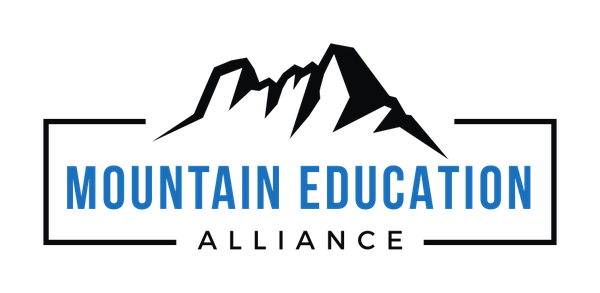
As we well know at The Mountaineers, teamwork and a shared passion for the outdoors can produce some incredible things. Over the past few years, volunteers and staff at The Mountaineers have enjoyed deepening our relationships with our partners at the American Alpine Club, Colorado Mountain Club, and the Mazamas as we work together to develop national climbing education standards for volunteer clubs. Through this work, relationships and friendships have formed, new climbing partners were found, and we all quickly realized how much we have in common. Today, The Mountaineers is proud to be a part of the newly-named Mountain Education Alliance (MEA) - a formalized partnership between our organizations, and we’re excited to be a part of a new program to recognize volunteer educators, both in the United States and worldwide.
Shared practices
For the past decade, staff across these organizations have met informally to share trends, best practices, and new ideas. We shared challenges and learned from one another as we embarked on new websites. We shared ideas on access and conservation. Today, all four organizations are members of Outdoor Alliance, a national alliance of human-powered recreation organizations that provides a professional, collective voice for conservation and access. Our youth programs also emerged around the same time, and those teams have met over the years to share ideas. Most recently, staff and volunteers from our clubs have had the opportunity to visit each other’s Leadership Conferences - another great way to share ideas and make connections.
 Building new friendships. Photo by Val Hawks (@valhawks)
Building new friendships. Photo by Val Hawks (@valhawks)
National climbing education standards
In 2016, we began coming together more formally around a truly exciting project: developing national standards for volunteer-led climbing education that meet UIAA international standards. This is different from other climbing education standards (like an AMGA certification) in that it is designed for volunteers who are helping new climbers become self-sufficient. It creates a certification that is more accessible than guide certifications and more appropriate for a recreational setting.
Over the course of the past three years, five cohorts of staff and volunteers from all four MEA member organizations (plus some key guests from the Appalachian Mountain Club, NOLS, Outward Bound, and the American Mountain Guides Association) met to examine the UIAA standards and carefully adapt them to meet the needs of mountain clubs in the United States. These teams of volunteers and staff then worked remotely to refine the standards, and each organization is on the verge of granting our first certifications to our volunteer leaders.
The certifications, known as Mountain LEAD (Leadership Education and Development) certificates, are designed to recognize highly-skilled volunteers in many disciplines of mountain sports, including rock climbing, mountaineering, ice climbing, skiing, and more. These certificates and programs will be vetted and approved through a rigorous audit process by the International Climbing and Mountaineering Federation (UIAA). With these certificates, the United States will have a benchmark for training and education in mountain sports, and its recipients will be recognized as certified educators not only in the United States, but across the globe.
Soon, The Mountain Education Alliance will accept applicants to become the first to receive certifications in one of three disciplines: Top-Rope Climbing, Single Pitch Sport Climbing, and Single Pitch Traditional Climbing. More certifications will be released in the future. Look for application instructions on mountaineers.org.
Joint trips
Although the national climbing education standards will undoubtedly serve as an important unifying force in American climbing, a very important benefit of their development was the relationships built between our organizations. Volunteers from each of our clubs met in five cohorts to develop these standards. The meetings took place over a weekend, rotating host states. Some met in Seattle, some in Portland, and others in Colorado. At each meeting we had opportunities to climb together, discuss teaching methods, and share challenges and successes. Understanding our shared experiences, values, and goals created a mutual respect that carried into the project and beyond.
Having friends in partner clubs is as rewarding as you would imagine – we share ideas, resources, education, and, of course, beta on favorite climbing destinations. This winter, The Mountaineers Alpine Ambassadors met up with the Colorado Mountain Club’s (CMC) Alpine Ambassadors in Ouray, CO, for a joint ice climbing trip. We had the pleasure of getting to climb with the locals, and the new friendships formed made for a rich and meaningful trip (and the climbing was great too!). Mountaineers volunteers hope to host the CMC in the future for a glacier climb on one of our Northwest peaks, and all of the MEA partners look forward to future adventures together.
 CMC Leader John Martersteck offers tips to Mountaineers Leader Sean Albert during a Ouray Ice Climbing trip. Photo by Val Hawks (@valhawks)
CMC Leader John Martersteck offers tips to Mountaineers Leader Sean Albert during a Ouray Ice Climbing trip. Photo by Val Hawks (@valhawks)
Looking ahead
We’re incredibly excited about the Mountain Education Alliance, and grateful for the hard work and partnership from each of our partner organizations, as well as from our own volunteers. We are looking forward to realizing all of the opportunities this opens up for our members and volunteers. Our shared partnership is rooted in climbing, but this alliance is about much more. Together, we can expand our impact through our shared community of outdoor recreationists, leaders, and advocates. As we continue to develop our relationships and deepen these ties, we hope to see the benefits impact many more of our activities beyond climbing.

Mountain LEAD certificates are built on the following values:
- Community: Build trust and camaraderie among mountain recreationists nationwide, and reduce barriers to integrate with other organizations through quality training, expanding the community for all.
- Consistency: Consistent and reliable training results in well informed leaders who teach common best practices. Every holder of a LEAD Certificate has been trained and evaluated as an educator who can deliver information in a way that is relevant, engaging, and helpful to their community.
- Quality: Quality education and leadership is paramount when participating in high-risk, high-consequence activities. LEAD educators deliver quality education to their students and help to increase the number of responsible and prepared climbers. Oversight from the UIAA and the Mountain Education Alliance ensures that these certificates will continue to meet rigorous standards as the LEAD program evolves over time.
- Volunteerism: The LEAD Program provides a certification track and support system that provides stability and quality to volunteer mountain education.
This article originally appeared in our Winter 2020 issue of Mountaineer Magazine. To view the original article in magazine form and read more stories from our publication, click here.
 Becca Polglase
Becca Polglase